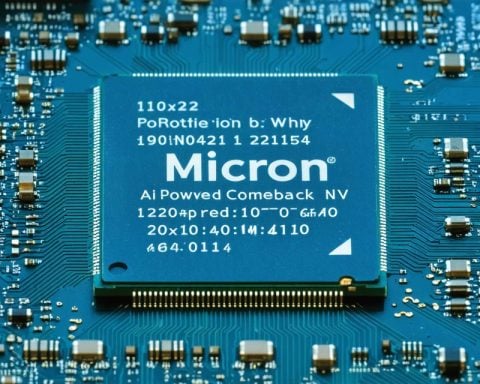In recent years, the world has seen a surge in the market capitalization of Tesla, a company often synonymous with cutting-edge electric vehicles and sustainable energy solutions. However, there’s a new and surprising element that’s contributing to Tesla’s impressive valuation: its increasingly dominant role in the smartphone integration and software ecosystem.
While many focus on Tesla’s automotive innovations, the company’s strategic emphasis on software development and integration with mobile technologies is setting it apart. The Tesla app, for instance, goes far beyond basic vehicle control, offering a seamless interface for navigation, streaming, and even games, all directly from a smartphone. As consumers demand more connectivity and ease of operation in their daily lives, Tesla’s approach to integrating advanced software and AI capabilities into their systems becomes pivotal.
The potential for expanding Tesla’s ecosystem into more aspects of daily life is vast. The company’s focus on AI, battery technology, and high-speed data processing systems positions it well to tap into emerging 5G technologies. Tesla’s vision could transform what we currently understand as a car into a mobile living space that interacts with other smart devices, turning everyday commutes into fully connected experiences.
As Tesla continues to enhance its smart technology interfaces and data analytics capabilities, the company is likely to entice investors not just with cars but with holistic, integrated tech solutions, thereby sustaining its robust market cap growth. This shift in perspective may offer clues to the future direction of both the automotive and tech industries as they converge.
Tesla’s New Frontier: Leading the Charge in Smartphone Ecosystem Integration
In a world where connectivity is king, Tesla is rapidly emerging as a leader not only in the electric vehicle space but also in smartphone integration and software ecosystems. While the company’s automotive prowess often grabs headlines, its strategic focus on software development and mobile technology integration is setting new benchmarks in innovation.
Trends and Innovations: Expanding Tesla’s Technological Ecosystem
Tesla’s market cap surge is not just about cars anymore. The company is strategically positioning itself as a technology giant. The Tesla app has evolved into a comprehensive platform offering more than just vehicle control. It encompasses navigation, entertainment, and even gaming capabilities, which highlights Tesla’s ambition to tap into the growing consumer demand for interconnected living experiences.
The introduction of 5G technology is expected to revolutionize this space further. Tesla aims to transform cars into mobile living spaces, seamlessly interacting with other smart devices. This could redefine daily commutes into enriched experiences powered by high-speed, data-driven interactions.
Pros and Cons: The Tesla Technological Ecosystem
Pros:
– Cutting-Edge Integration: Tesla’s systems offer unmatched integration between smartphones and vehicles, ensuring a seamless user experience.
– Advanced AI Capabilities: Enhanced AI and data analytics allow for personalization and efficiency in vehicle management.
– Connected Lifestyle: With the blend of high-speed 5G and smart tech, Tesla vehicles can become extensions of the home, adapting to user preferences.
Cons:
– Initial Costs: Advanced technology integration can lead to higher vehicle purchase prices.
– Dependence on Software Updates: Regular software updates are essential to maintain system security and performance, which can be a barrier for some users.
Comparisons: How Tesla Stacks Up Against Competitors
Tesla’s approach to integrating software ecosystems surpasses many traditional auto manufacturers who are still catching up with basic connectivity features. This positions Tesla more closely with technology corporations like Apple and Google, as opposed to traditional automakers.
Security Aspects: Navigating the Digital World
As Tesla vehicles become more interconnected, cybersecurity remains a critical concern. Tesla continually invests in cutting-edge security measures to protect user data and ensure secure vehicle operations. Regular software updates help mitigate emerging security risks.
Sustainability: Smart Tech and Green Energy
Tesla’s emphasis on sustainable energy is well-documented, but advancement in smart technology interfaces complements this eco-friendly vision. By improving the overall efficiency of vehicle systems, Tesla not only enhances user experience but also reinforces its commitment to reducing environmental impact.
Predictions: The Road Ahead for Tesla and Its Ecosystem
Looking forward, Tesla is likely to further integrate its technological ecosystems, potentially incorporating more smart home functionalities and broader AI applications. As the company continues this trajectory, its role in shaping the future of both the automotive and technology sectors becomes more pronounced.
For more insights into how Tesla is shaping the future of mobility and technology, visit the Tesla website.























